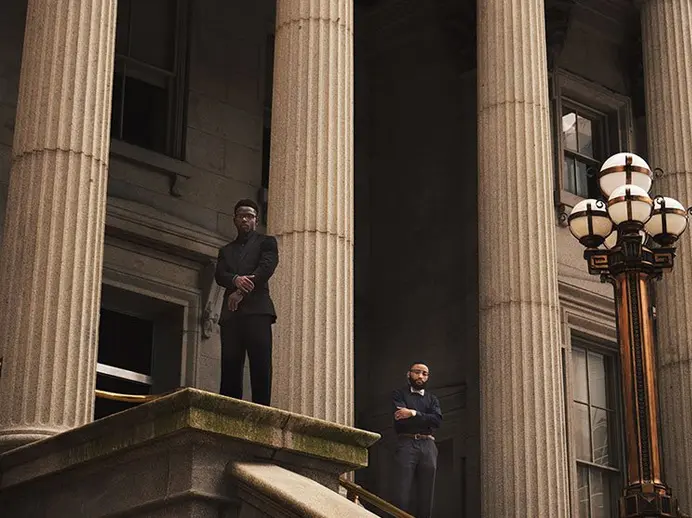4 July, 2019
Wills & Estates, Articles
Can I Do a Video Will?

Smartphones have put a video camera in the pocket of nearly every person you see, with widespread and profound impacts for various sections of society, including security, surveillance and in particular, the law.
In recent years the prevalence of mobile recording has resulted in a number of court cases debating whether a ‘video will’ made by someone who later passes away can be valid and enforceable. In Australia, for a document to be recognised as the will of a deceased person it must be in writing and signed by the testator (the will-maker) in the presence of two or more witnesses present at the same time. How then, can a video recording of a will be valid?
While the law is often slow to adapt to the legal impacts and implications of new technology, the courts have set down a number of important principles when it comes to video recording your will and more generally, what are termed ‘informal’ wills.
A recent case example
The case of Radford v White decided in the Queensland Supreme Court in 2018 provides a good recent example of this specific issue.
In this case, Radford was the de facto partner of Jay, a 39-year-old man who bought a new motorcycle. Before he picked up the motorcycle, Radford encouraged Jay to record a video in which he directed what he wanted to happen with his assets should he pass away. In the recording, Jay said the majority of his assets should go to Radford and that nothing should go to his “soon to be ex-wife”, White.
Later that day, Jay had a road accident on his new bike, sustaining serious injuries including a severe head injury. Although later discharged from hospital, 14 months later he passed away from an overdose of prescribed painkillers. Radford made an application to the court seeking an order that the video recording Jay had made be considered a valid will, while Jay’s ex-wife, White, opposed Radford’s application.
The court decided in Radford’s favour that the video recording did form Jay’s will. It found that:
- the video recording was a ‘document’;
- the document purported to state the testamentary intentions of Jay; and
- Jay demonstrated an intention to complete the formalities of a will at a later date by stating in the video that he’d “fill out the damn forms later”.
The decision in Radford v White joined a number of other cases where it was found a document other than a written, signed and witnessed will can operate in that capacity for the deceased, including:
- notes on a mobile phone (Re Yu [2013]);
- Microsoft Word documents (Yazbek v Yazbek [2012]);
- handwritten documents not signed or dated (Public Trustee v New South Wales Cancer Council [2002]);
- letters to solicitors (Permanent Trustee Co Ltd v Milton (1996));
- instructions to solicitors (Saltmer v Renrick Lawyers Pty Ltd [2018]);
- audio recordings (Re Estate of Carrigan (dec’d) [2018]).
What are the risks of video recording your will?
Despite the decision in the court cases above, it’s not advised you rely on a video recording of your will or other informal means in order to have your wishes carried out after your death. A properly executed written will remains the surest way to ensure your instructions are adhered to when you’re no longer here.
By making a video will, you leave it in the hands of the courts to determine whether it is a valid expression of your wishes. If the court decides the recording is not valid (and there is no other will), you could be declared intestate and your assets and belongings be distributed by the state without taking account of your wishes.
In determining the validity of an informal will such as a video recording, a court will take into account:
- That the video is an actual record of the testamentary wishes of the testator and must clearly address the disposal of their property and assets, in contemplation of death.
- That the video shows an intention, without anything more, to operate as a will. This means it will be likely invalid if it is referred to in the recording as a draft or a letter of instruction, for example. It’s wording cannot also consist of mere wishes or requests.
- That the video be a ‘document’. This is the easiest element to establish given courts have previously found that any disk, tape, soundtrack or other device in which sounds are embodied and also film, are considered a document.
It should be noted that the onus of proof that the video is the will of a ‘capable’ testator lies with the person (usually one of the beneficiaries) claiming it is the deceased person’s will. The court may read direct statements and notes by the deceased, and evidence about when and how the video was recorded, to make its decision.
Also note that if a statement in a video recording which purports to be the final will of the deceased conflicts with the terms of a written will in their name, the written version will prevail.
In conclusion
While there are judgments in Queensland and some other states which have supported the validity of informal wills in the form of video recordings, preferring this format to that of a written, properly executed will remains ‘Russian roulette’ in the eyes of legal experts in estates and wills. There is no guarantee a court will come to the same conclusion about a video will in a case based on similar facts.
In the end, to guarantee your instructions are carried out as you want them to be after your death, it’s best to make a proper will with the advice of legal experts experienced in estates and wills, such as OMB Solicitors. This way you don’t leave it to chance that your will is legally enforceable, avoiding a potentially costly mess for your beneficiaries. If any of the issues raised in this article provide you with questions or concerns, contact Gold Coast Lawyers today on (07) 5555 0000 or [email protected]
Our Services
Property
Buying, selling or leasing? OMB Solicitors can help you today with all your property law needs.
All Property Services
Business Law
No matter what your business law issue is, OMB Solicitors have a wealth of experience across an array of commercial law practice areas.
All Business Law Services
Wills & Estates
Is your estate plan safe from litigation? Is your will up to date? Who will make decisions for you if you can’t?
All Wills & Estates Services
Family Law
Separated or contemplating separation? Considering a property settlement? OMB Solicitors can help you today with all your family law matters.
All Family Law Services
Body Corporate
Need body corporate advice? Look no further! At OMB Solicitors we are experts in all matters relating to strata and bodies corporate.
All Body Corporate Services
Litigation
OMB Solicitors have an expert team of litigation lawyers to assist in not only litigation, but also exploring other ways of resolving disputes.
All Litigation Services
Insurance
OMB Solicitors’ experienced insurance lawyers are on hand to assist with your insurance law matter.
All Insurance Services
